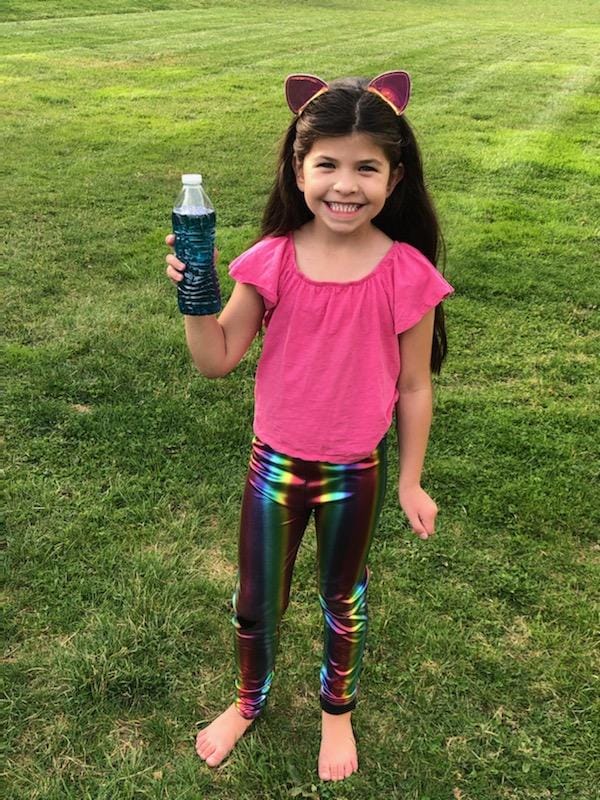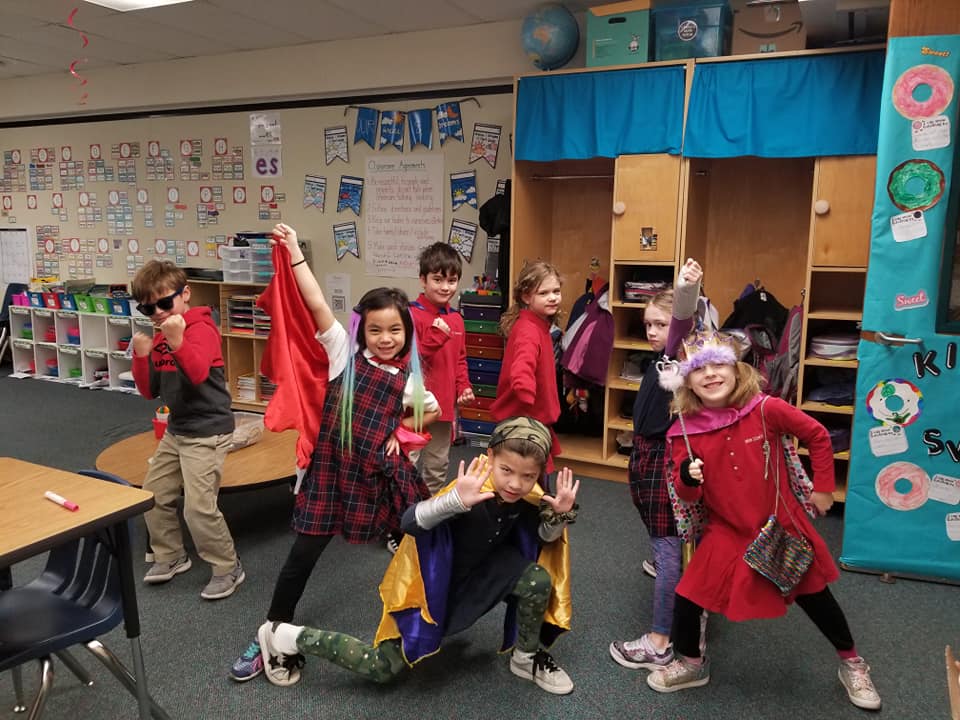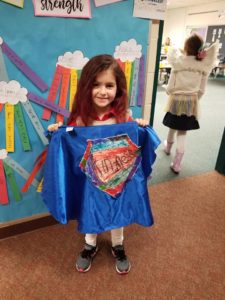How to Change Passive Aggressive Behavior
0Is there a passive aggressive person in your life? A child, friend, colleague, supervisor, spouse, relative, teacher or other person who makes you feel like you are on an emotional roller coaster–friendly one day, but then full of unspoken hostility the next?
If so, chances are good that you are interacting with someone who uses passive aggression as their primary means of expressing anger. What exactly does that mean? And what can you do about it? Click the links to see my recent posts on Psychology Today about how to recognize passive aggressive behavior and how to change it in the long term.
To cut and paste the original links, see below:
What is passive aggression?: https://www.psychologytoday.com/us/blog/passive-aggressive-diaries/202006/changing-passive-aggressive-behavior
6 steps for changing passive aggressive behavior: https://www.psychologytoday.com/us/blog/passive-aggressive-diaries/202006/6-steps-changing-passive-aggressive-behavior#_=_
Teaching Tenacity to Students During COVID-19
0I want my students to know that even when we are apart due to COVID-19, we are still learning and growing together. To that end, every Tuesday I send them a short video about tenacity, along with a story or example of tenacious behavior in action.
Last week, I challenged my students to set a goal for themselves–to set out to achieve something that couldn’t be completed in a single day but rather would take days, weeks, or even months to complete. The idea is for kiddos to gain first hand experience at persisting through challenges, overcoming obstacles, motivating themselves over time, and eventually seeing how their TENACITY can pay off.
I’ve heard some great examples from kids, including plans to plant and tend to a summer garden, plans to learn how to do a cartwheel, and plans to learn how to play the ukulele. I also receives photos of these two outstanding examples of projects that require tenacity: clearing out a giant wood pile and assembling a 500 piece puzzle.
Way to go, kiddos!! I am proud of the goals you have set and I hope you are proud of your efforts!!


{“source_sid”:”8FF06A26-9F78-4AC6-B943-659F5528CBCA_1588345951578″,”subsource”:”done_button”,”uid”:”8FF06A26-9F78-4AC6-B943-659F5528CBCA_1588345626155″,”source”:”other”,”origin”:”unknown”}
Tenacity Tuesday
0Hi all,
Since we’ve been under stay-at-home orders in our state and school has turned into “virtual school” for the last few weeks, I’ve been making short daily, themed videos for my students. The theme for Tuesdays has to do with the character traits of perseverance and persistence, or, as I like to call it, Tenacity Tuesday!
This week, I made a short video for PS-Gr 5 students about changing automatic negative thoughts (e.g. “I can’t do it” or “It’s too hard!”) into more positive, realistic, tenacious ones (e.g. “I can’t do it yet,” and “With practice, I’ll figure this out!”) This video features classic CBT skill building, helping kids understand the connection between thoughts, feelings & behaviors.
Find more of my Tenacity Tuesday videos on YouTube here or using the link below:
https://studio.youtube.com/channel/UCgXRBdVzC4bxaThTp4qPxoQ/videos/upload?filter=%5B%5D&sort=%7B%22columnType%22%3A%22date%22%2C%22sortOrder%22%3A%22DESCENDING%22%7D
https://youtu.be/9dBAuMrH02k
Mindful Monday: Making Glitter Jars
0While we are under stay-at-home orders here in Pennsylvania, I’m staying connected with students through daily themed videos. On Mondays, I share mindfulness practices and strategies. 
Here was the first video I created last week, on mindful breathing strategies that are fun and easy for kids to use!
And here is this week’s video, where I show kids how to make a Glitter Jar to develop the mindful practice of focusing on the here & now as a way to calm and center the brain and body.
Best of all, here’s one of my amazing students, proudly showing me her jar!!!
Cultivating Resilience In Children During Coronavirus
0 At this morning’s Coffee with the Counselor, we talked about ways to cultivate resilience in young people–at any time–but especially as we all adjust to a new normal. We talked about things like:
At this morning’s Coffee with the Counselor, we talked about ways to cultivate resilience in young people–at any time–but especially as we all adjust to a new normal. We talked about things like:
1. The importance of CONNECTION with family members and loved ones. Kids who feel safe, supported, and connected to others are best positioned to cope with stress.
2. Though the spread of a pandemic virus is largely out of an individual person’s hands, young people benefit from feeling a realistic sense of CONTROL over their lives. Encourage kids to control what they can–thorough hand-washing, staying at home, managing their school work, and being kind to others.
3. Instilling COMPETENCE & CONFIDENCE. As kids encounter new online learning methods, caregivers should allow them to figure some things out on their own. Experiencing manageable struggles builds a child’s sense of competence that they have what it takes to handle stress and confidence in their independent problem-solving. Parents, stand back instead of jumping in to help right away! Affirm kids with statements like, “It was great to see how you figured that out!”
4. I’m a big fan of kids developing responsibility through chores; as luck would have it, giving kids the sense that they CONTRIBUTE to a household and/or to a cause greater than themselves is a great way to build resilience. Create opportunities for kids to contribute to the household in meaningful ways to give them greater purpose.
5. I’m running out of words that begin with the letter “C” but I still want to mention that resilience is also cultivated by helping kids develop healthy thought patterns. While our brains tend to jump toward “worst case scenarios” and negative ways of thinking about things like pandemics and stay-at-home orders, parents have a huge role to play in reality checking their kids’ way of thinking. So, for example, if you hear your child say something like, “We’re stuck at home,” you can gently re-frame this negative thought into a positive one by saying something like, “I’m grateful that we’re safe at home together.” Likewise, if a young person hears on the news that over one million people have contracted COVID-19, it can be helpful to add, “Did you know that over 100,000 people worldwide have already made a complete recovery from the virus?” Kids who have the ability to keep their thoughts realistic (rather than catastrophic) and optimistic (instead of pessimistic) show greater resilience in the face of stress.
Stay healthy, safe & well, everyone!
What Parents Can Do to Manage Coronavirus Fears in Kids
0 We’ve all been captivated and caught up in the coverage of the coronavirus as it spreads around the world and into our communities. Here is a post I wrote for Psychology Today, offering practical suggestions for what parents & caregivers can do to help kids cope with COVID-19, school closings, event cancellations, and the climate of fear. Please share with anyone you think could benefit.
We’ve all been captivated and caught up in the coverage of the coronavirus as it spreads around the world and into our communities. Here is a post I wrote for Psychology Today, offering practical suggestions for what parents & caregivers can do to help kids cope with COVID-19, school closings, event cancellations, and the climate of fear. Please share with anyone you think could benefit.
Happy Campers: Summer Camp Secrets for Raising Happy Kids
0Although I just got my copy of Happy Campers, by Audrey Monke, you would think I had owned it for years already given the multitude of dog-eared pages, the massive amount of notes in the margins, and the number of parents I’ve already lent the book to, urging them to read specific sections. Happy Campers is the brand-new, but already well-worn book I wish I had had twenty years ago when I first started my career working with children and families. It is full of practical, realistic, easy-to-implement, no-cost, research-based, transformational strategies that will help parents and caregivers bring the magic of summer camp into daily home interactions.
Happy Campers shines a light on nine overall positive practices used in quality summer camps and offers readers dozens (and dozens!) of ways to use these strategies to help kids and families thrive year-round. Starting with ideas for building nurturing connections between family members and then exploring critical topics such as the importance of optimism in interactions, how to nurture grit and determination, helping kids experience independence and grow their individual identities, making kindness cool, building healthy friendship skills, and cultivating the kind of self-confidence that makes kids unstoppable, Monke’s book is as realistic and readable as it is invaluable.
As a School Counselor, therapist, and parent, Happy Campers is everything I could hope for in a book and more! I highly recommend it for anyone living or working with young people!”


March Coffee with the Counselor
0This school year, I’m offering monthly Coffee with the Counselor events at my school on the first Friday of each month. Coffee with the Counselor mornings will provide an informal opportunity for parents & caregivers to discuss issues related to child and adolescent development, mental health, social & emotional development, and general well-being. I’ll share interesting resources and recommend readings on selected topics, to inspire discussion within the group.
 On March 6th, we will be talking about screentime & social media with a focus on popular apps that parents need to know about (read: let’s be sure we talk about TikTok!) I’ll also offer some suggested do’s & don’ts for helping our kids consume technology in safe ways. I hope you will join me!
On March 6th, we will be talking about screentime & social media with a focus on popular apps that parents need to know about (read: let’s be sure we talk about TikTok!) I’ll also offer some suggested do’s & don’ts for helping our kids consume technology in safe ways. I hope you will join me!National Online Safety’s E-Safety Guides
15 Apps Parents Should Look Out For
Why Banning Social Media is Not the Best Answer for Kids
What is the Right Age for Kids to Use Social Media?
TikTok is a Pedophile Magnet & Unsafe for Kids
Protecting Kids from Online Hate: An Interview with Sue Scheff
Send Nudes: A New Study Shows How Often Boys Pressure Girls for Explicit Photos
RECOMMENDED BOOKS
Screenwise: Helping Kids Survive & Thrive in Their Digital World
The Art of Screentime: How Your Family Can Balance Digital Media & Real Life
Disconnected: How to Reconnect our Digitally Distracted Kids
Tune in to the Parenting the Challenging Child Podcast
0Interested in learning more about how to understand and manage your child’s moods, outbursts, misperceptions, social skill problems, anxiety, friendship problems, lack of empathy, and more?
Tune in to this podcast from Sunshine Parenting where host Audrey Monke and I talk about my newest book, Parenting The Challenging Child: The Four-Step Way To Turn Problem Situations Into Learning Opportunities, based on my work with the Life Space Crisis Intervention Institute.







